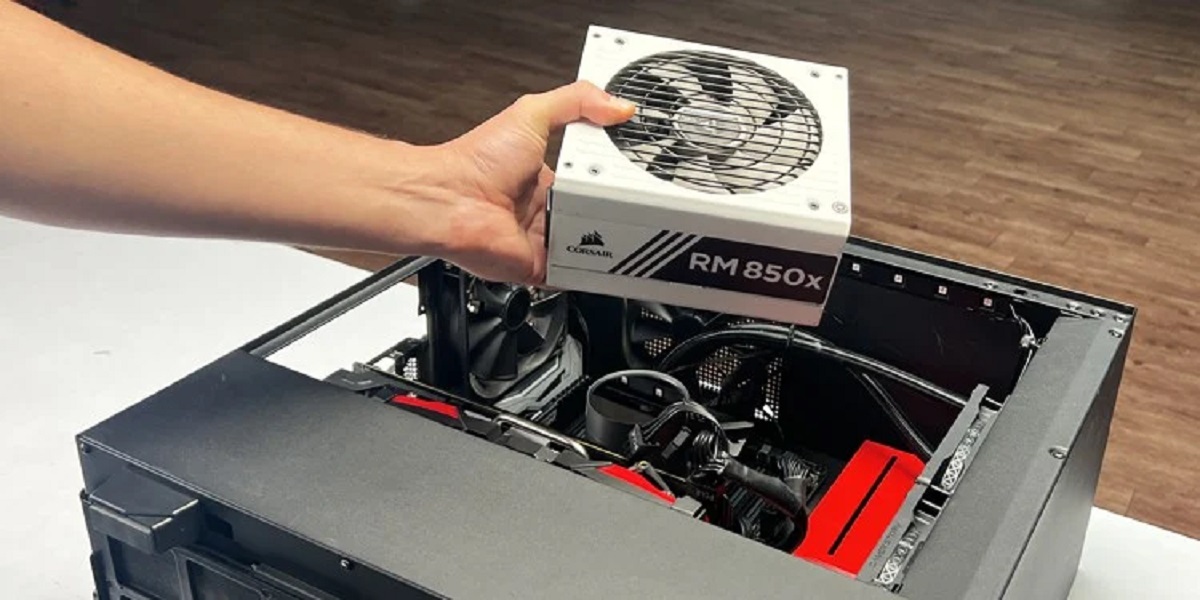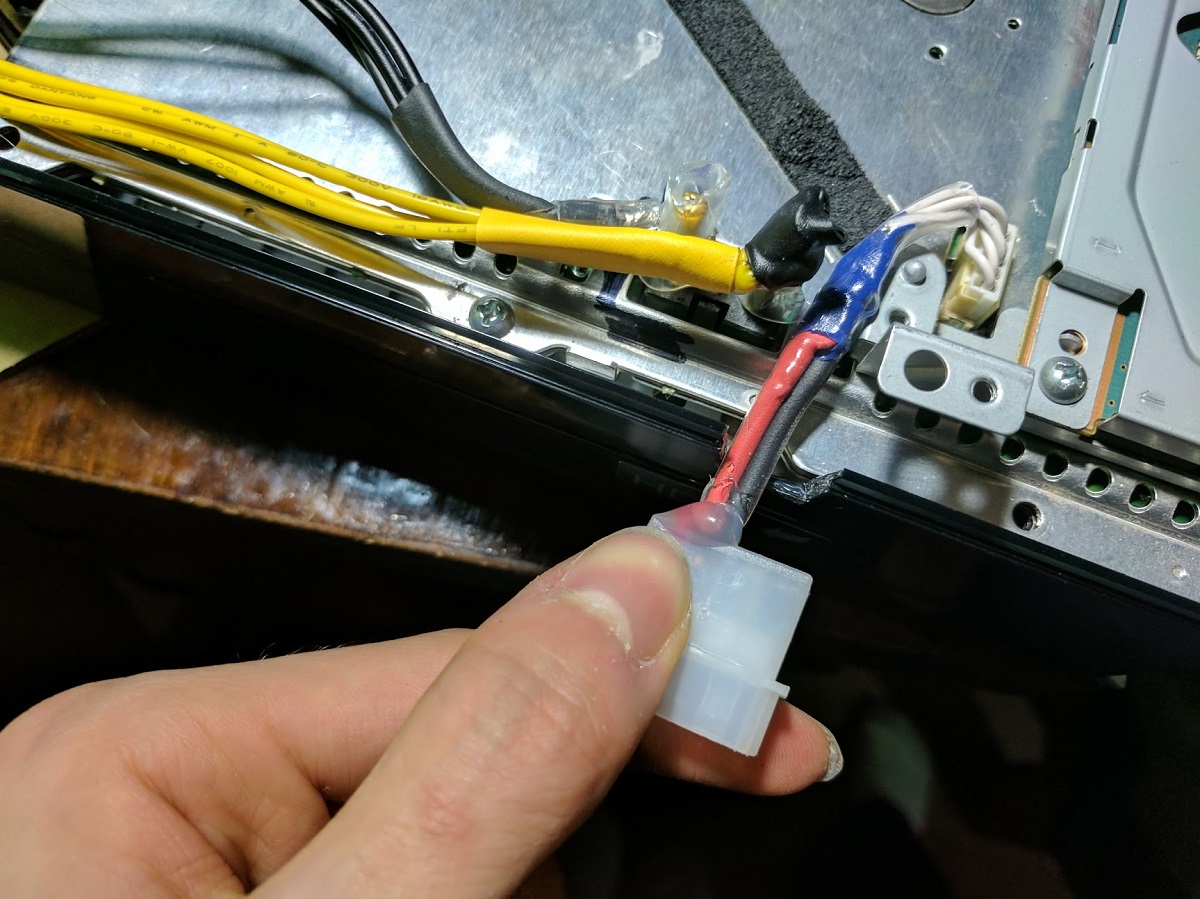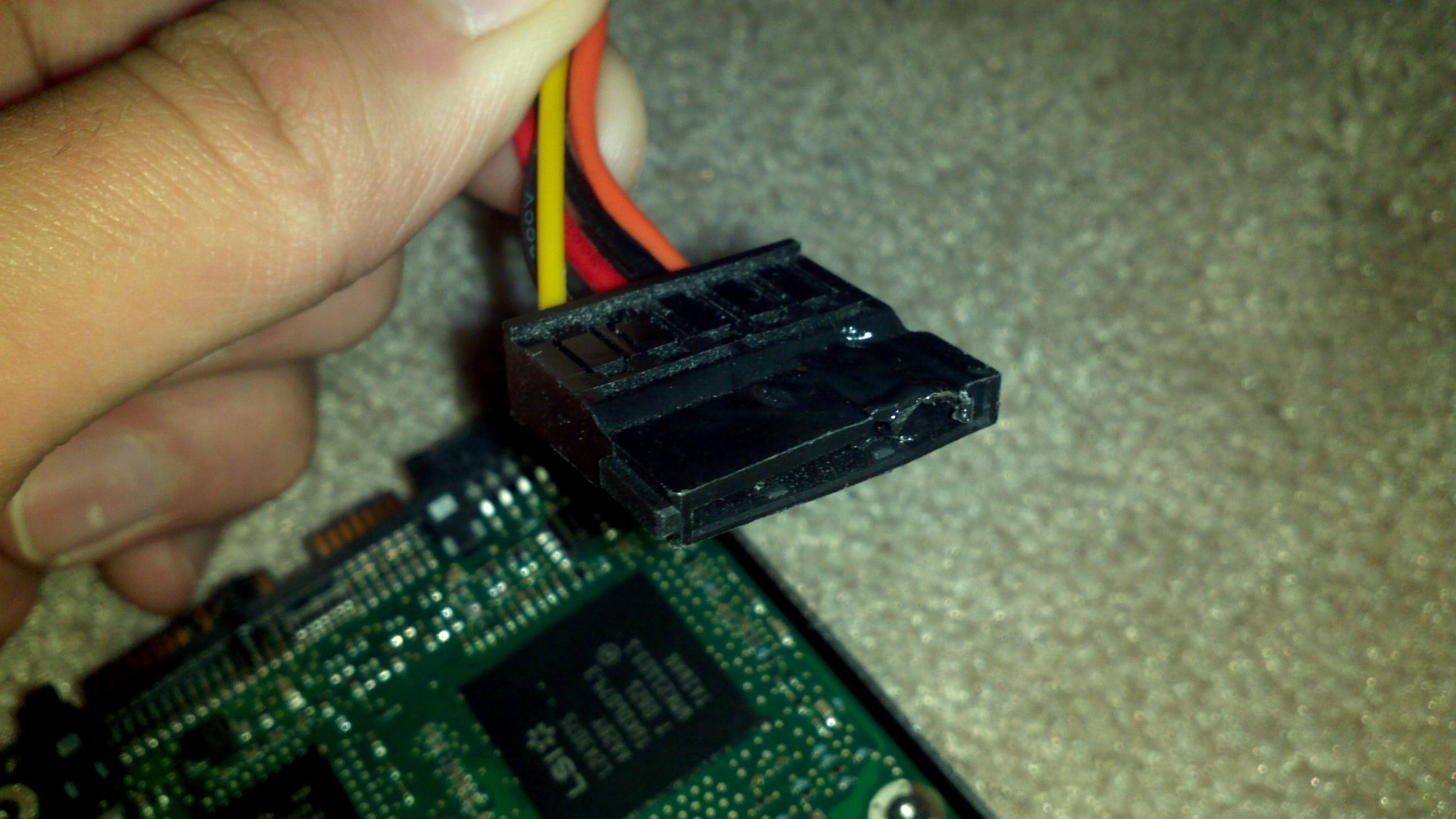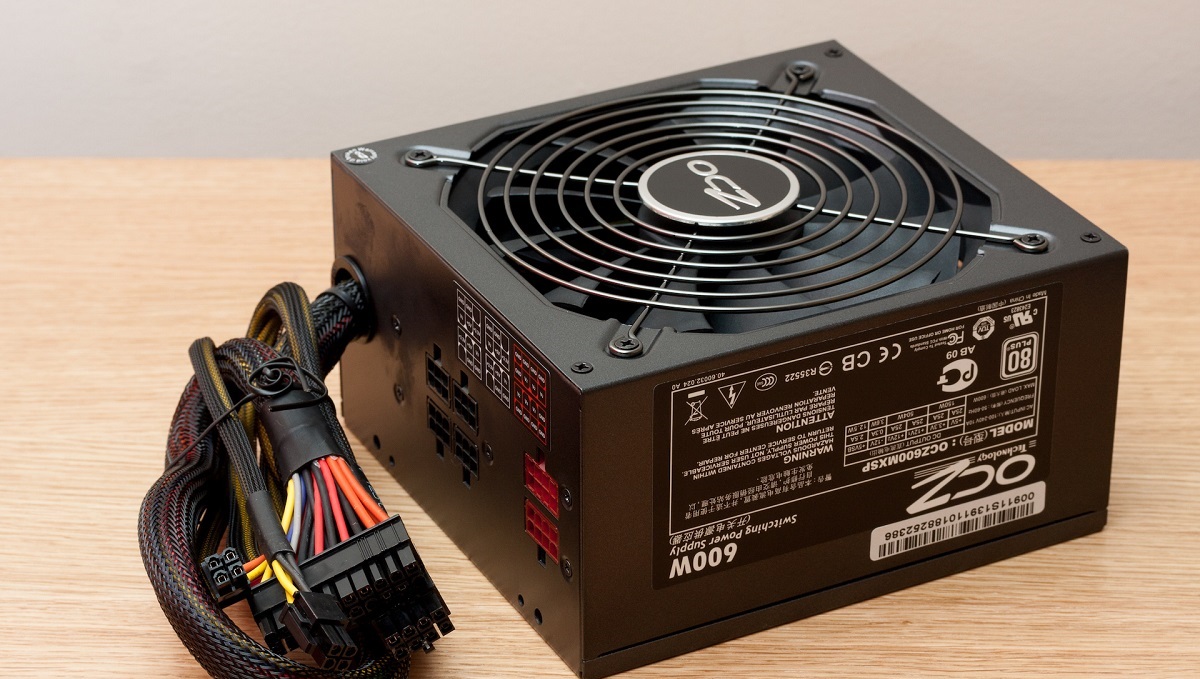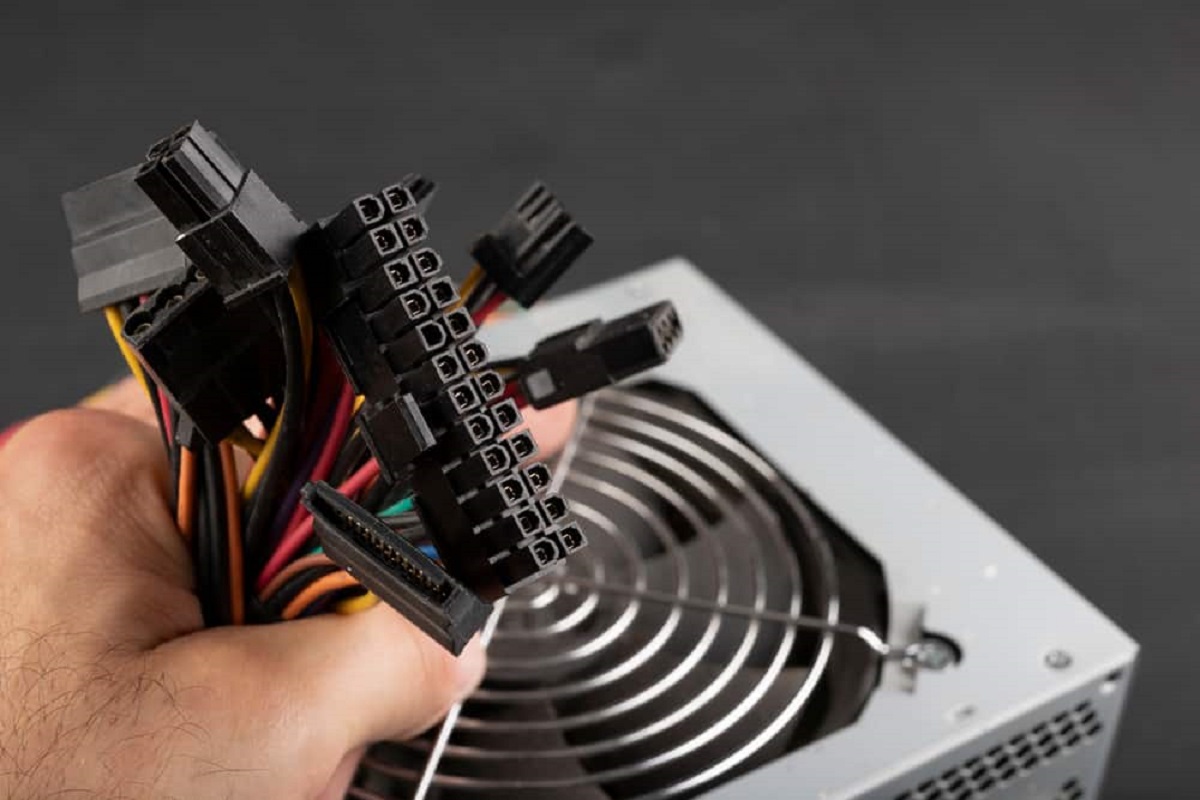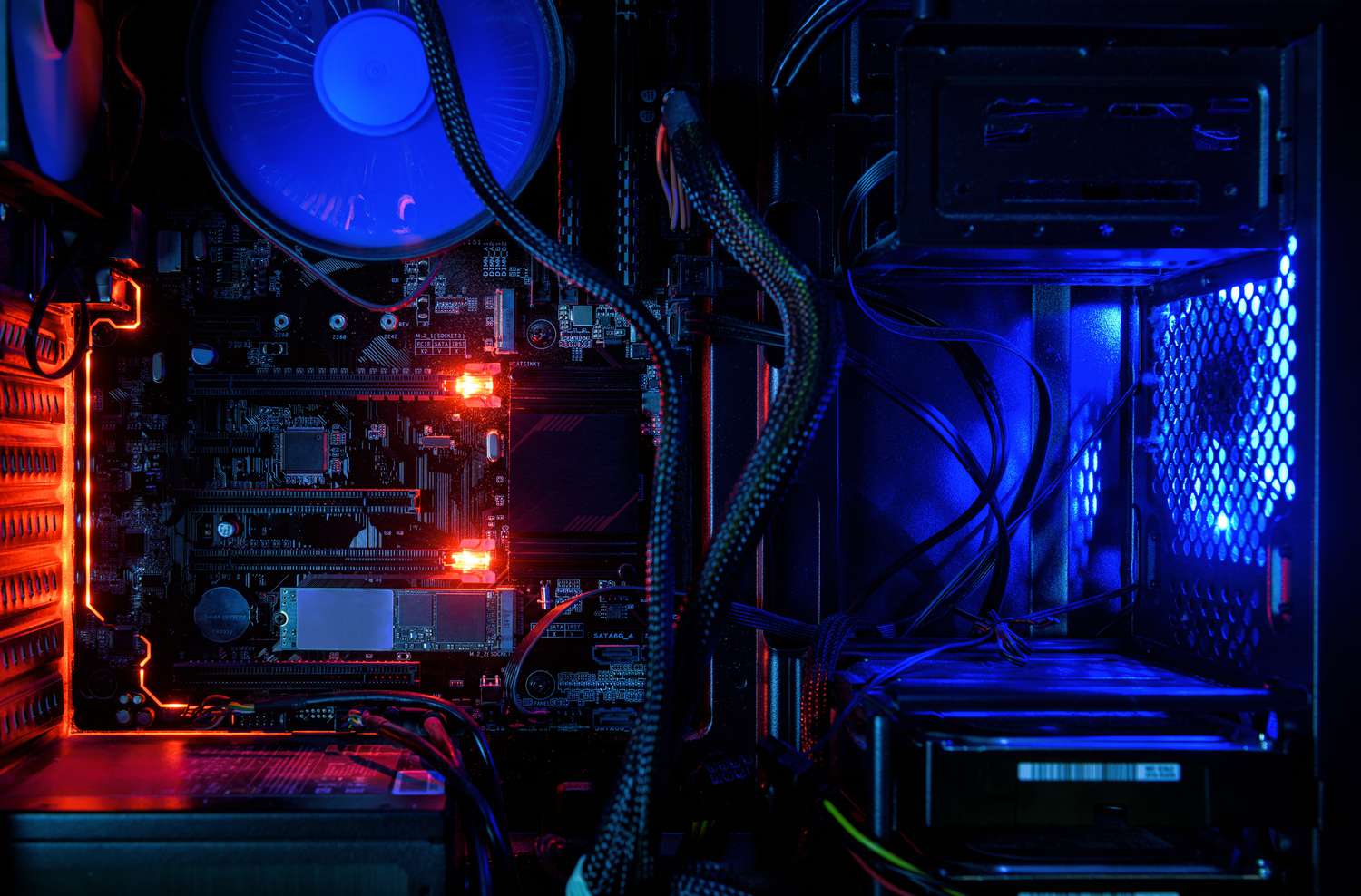Introduction
Welcome to the world of computer hardware, where every component plays a crucial role in the overall performance of your system. One of the most important components is the Power Supply Unit (PSU), which provides the necessary power for all the other components to function properly. The wattage of your PSU is crucial in determining its capacity to handle the power demands of your system. But what happens if you exceed the PSU wattage? Let’s find out.
Understanding the wattage of a PSU is important because it directly corresponds to the amount of power it can deliver to your computer. Depending on the components you have installed, your system’s power requirements may vary. It is essential to choose a PSU with adequate wattage to meet these power demands. However, if you exceed the PSU’s wattage capacity, it can result in several consequences that may impact the performance and longevity of your system.
In this article, we will explore the potential consequences of exceeding PSU wattage and provide some tips on how to avoid reaching this point. So, if you’ve ever wondered about the repercussions of pushing your PSU beyond its limits, keep reading to find out.
Understanding PSU Wattage
Before we dive into the consequences of exceeding PSU wattage, it’s important to understand what wattage actually means in the context of a Power Supply Unit. PSU wattage refers to the maximum power output that the unit can provide to different components of your computer. This includes the motherboard, CPU, GPU, hard drives, and other peripherals.
The power requirements of your system depend on various factors such as the number and type of components you have installed, their power consumption, and any overclocking done. Each component has a designated power requirement, and when combined, they create the total power draw of your system. Choosing a PSU with the appropriate wattage ensures that it can handle the power demands of your system, providing stable and reliable power.
PSU wattages come in different ranges, typically starting from 300W and going up to 1000W or more for high-end systems. It’s crucial to assess your system’s power requirements carefully to choose a PSU that can comfortably handle the load without being underutilized or strained.
When considering PSU wattage, keep in mind that it’s always a good idea to have some headroom. A PSU operating close to its maximum capacity is more likely to have efficiency issues, generate more heat, and potentially cause system instability. Additionally, if you plan to upgrade or add more power-hungry components in the future, having extra wattage will save you from having to invest in a new PSU.
Now that we have a basic understanding of PSU wattage and its importance, let’s explore the potential consequences of exceeding it.
Consequences of Exceeding PSU Wattage
Exceeding the wattage capacity of your PSU can lead to various consequences that can impact the overall performance, stability, and lifespan of your system. Let’s take a closer look at these potential consequences:
1. System Shutdown: When your system draws more power than the PSU can handle, it may result in unexpected shutdowns or even a complete system failure. The PSU has built-in protection mechanisms that can detect when the power demands exceed its capacity. In such cases, the PSU shuts down to prevent any damage to the components.
2. Overheating and Reduced Lifespan: When a PSU operates near its maximum capacity, it generates more heat. This can lead to higher temperatures inside your computer case, affecting the overall cooling efficiency. Overheating can lead to a reduced lifespan of both the PSU and other components, as prolonged exposure to high temperatures can cause degradation and instability.
3. Damaged Components: Exceeding the PSU wattage can put undue stress on the connected components. The extra power demand can cause voltage instability, which can damage sensitive components such as the CPU, GPU, and motherboard. Over time, this can lead to erratic behavior, system crashes, and even permanent component failure.
4. Impact on Power Efficiency: A PSU operates at its peak efficiency when it is working within a certain range of its total capacity. When you exceed the wattage, the PSU may operate outside its optimal efficiency curve, leading to reduced power efficiency. This means that more power is wasted as heat, resulting in higher energy bills and a less eco-friendly system.
It is essential to note that the severity of these consequences can vary depending on the extent to which you exceed the PSU wattage, as well as the quality and design of the PSU itself. Higher-quality PSUs tend to have better protections and can handle temporary power spikes more effectively. Nevertheless, it is best to avoid exceeding the PSU’s wattage limit to ensure the longevity and reliability of your system.
System Shutdown
One of the immediate consequences of exceeding the wattage capacity of your PSU is the potential for system shutdowns. When your system demands more power than the PSU can provide, built-in protection mechanisms kick in to prevent any damage to the components. This can result in a sudden and unexpected shutdown of your computer.
The PSU is designed to safeguard your system by shutting down when it detects that the power draw exceeds its capacity. This mechanism is in place to protect the PSU and other components from overheating, voltage spikes, and potential electrical damage.
Experiencing frequent system shutdowns due to exceeding the PSU wattage can be frustrating, as it disrupts your work, gaming sessions, or any ongoing tasks. It is important to address this issue promptly to prevent any further damage.
If you find that your system is shutting down frequently, especially during high-performance tasks or when using power-hungry devices, it is a clear indication that your PSU is not able to handle the power demands of your system. In such cases, it is recommended to evaluate the power needs of your system and consider upgrading your PSU to one with a higher wattage capacity.
Choosing a PSU with a higher wattage capacity will provide your system with the necessary power to handle its demands without triggering frequent shutdowns. It is important to select a PSU with a wattage that not only meets your current system requirements but also leaves some headroom for future upgrades or additions.
In addition to selecting the appropriate PSU wattage, it is also crucial to ensure that your system components are properly balanced in terms of power consumption. A power-hungry graphics card, for example, may require a significant portion of the total power draw. In such cases, it becomes even more important to choose a PSU that can handle the specific requirements of that component.
By addressing the issue of system shutdowns due to exceeding PSU wattage, you can enjoy a stable and reliable computing experience without interruptions or potential damage to your system.
Overheating and Reduced Lifespan
Exceeding the wattage capacity of your PSU can have a direct impact on the temperature inside your computer case, leading to overheating of components and a reduced lifespan for both the PSU and other hardware.
When a PSU operates near its maximum capacity, it generates more heat due to increased power draw. This heat adds to the overall thermal load inside the computer case, affecting the efficiency of the cooling system. As a result, components such as the CPU, GPU, and motherboard may experience higher temperatures, which can lead to instability, performance degradation, and even component failure.
Overheating not only affects the performance and stability of your system but also significantly impacts the lifespan of the components. Prolonged exposure to high temperatures can cause degradation of the internal components, leading to a shorter lifespan. The excessive heat generated by an overloaded PSU can also accelerate the aging of capacitors, which are critical components of the power delivery system.
In addition to the PSU, other components such as the graphics card and CPU also generate heat during operation. When a system exceeds the PSU wattage, the increased power demand puts additional strain on the components, causing them to work harder and generate even more heat. This creates a vicious cycle of increased heat output, leading to thermal throttling, decreased performance, and potential damage.
To mitigate overheating and prolong the lifespan of your components, it is essential to ensure that your system is equipped with an adequate PSU wattage. This allows for a healthier power distribution, reducing the strain on the PSU and preventing excessive heat buildup.
Furthermore, maintaining proper airflow within your computer case is crucial. Installing efficient cooling solutions such as fans or liquid cooling systems can help dissipate heat effectively. Ensuring good cable management and keeping the inside of the case clean from dust and debris also contribute to better airflow and heat dissipation.
By avoiding the strain caused by exceeding the PSU wattage, you can effectively minimize overheating issues and extend the lifespan of your components, resulting in improved system performance and reliability.
Damaged Components
Exceeding the wattage capacity of your PSU can have detrimental effects on the components connected to your system. The extra power demand can result in voltage instability, which can damage sensitive electronic components such as the CPU, GPU, motherboard, and other peripherals.
When a PSU is pushed beyond its limits, it may struggle to deliver stable and consistent power to the connected components. This can lead to voltage fluctuations and spikes, which can be harmful to the delicate circuitry of these components. Over time, these fluctuations can cause irreversible damage and impact the overall performance and functionality of your system.
The CPU and GPU, in particular, are highly vulnerable to damage caused by exceeding the PSU wattage. These components require a stable and consistent power supply to operate optimally. When the PSU is unable to provide sufficient power or fails to deliver a steady voltage, the CPU and GPU may experience instability, crashes, or even permanent damage.
In addition to the CPU and GPU, other components such as RAM modules, hard drives, and even the motherboard can also be affected by voltage instabilities. System crashes, data corruption, and component failure are common consequences when the PSU is unable to meet the power demands of the system.
It is important to note that the quality and design of the PSU also play a significant role in protecting your components. Higher-quality PSUs typically have better protections in place, such as over-voltage protection (OVP) and under-voltage protection (UVP), which can help minimize the risk of damage due to exceeding the wattage capacity.
To avoid damaging your components, it is essential to choose a PSU with an adequate wattage rating and ensure that it is a reliable and high-quality model. Consider consulting with professionals or referring to reliable sources when selecting a PSU to guarantee that it meets the power requirements of your system.
By avoiding the risk of damaged components caused by exceeding PSU wattage, you can safeguard the longevity and performance of your system, ensuring a smooth and stable computing experience.
Impact on Power Efficiency
Exceeding the wattage capacity of your PSU not only affects the performance and longevity of your components but also has implications on the power efficiency of your system. A PSU operates at its peak efficiency when it operates within a certain range of its total capacity. When you exceed the wattage, the PSU may operate outside its optimal efficiency curve, resulting in reduced power efficiency.
Power efficiency refers to how effectively a PSU converts the incoming power from the electrical outlet into usable power for your computer components. A higher efficiency PSU will waste less energy as heat during the conversion process, resulting in lower energy consumption and a more environmentally friendly system.
When you exceed the PSU wattage, the PSU needs to draw more power from the outlet to meet the demands of your system. However, operating near or at the maximum limit of the PSU reduces its efficiency and can result in a higher amount of wasted energy. The excess power drawn beyond the PSU’s capacity is dissipated as heat, inefficiency, and power loss, increasing your energy costs over time.
Furthermore, an overloaded PSU may struggle to regulate the power delivery effectively, leading to fluctuations and instability in the voltage supplied to the components. These voltage fluctuations can negatively impact the performance and reliability of your system, leading to instability, crashes, and potential data loss.
To optimize power efficiency, it is crucial to select a PSU with an appropriate wattage that matches the power requirements of your system. By choosing a PSU with some headroom, the maximum load that your system will place on the PSU is reduced, allowing it to operate within its peak efficiency range. This means that your system will draw less power from the outlet, resulting in lower energy consumption and reduced environmental impact.
Investing in a high-quality PSU with good efficiency ratings, such as those certified under the 80 PLUS standard, can further enhance power efficiency and reduce energy wastage. These PSUs are designed to meet strict efficiency criteria and can provide more stable and efficient power delivery to your components.
By ensuring that your PSU wattage is appropriate for your system’s needs and choosing an efficient PSU, you can optimize power efficiency, lower your energy costs, and contribute to a greener computing environment.
Tips to Avoid Exceeding PSU Wattage
Preventing the exceedance of your PSU wattage is crucial for maintaining the stability, performance, and longevity of your system. Here are some helpful tips to ensure that you don’t surpass your PSU’s capacity:
1. Assess Power Requirements: Begin by assessing the power requirements of your system. Consider factors such as the CPU, GPU, RAM, storage devices, and any other peripherals. Each component has specific power requirements that should be accounted for when choosing a PSU. Websites and calculators are available to help you estimate the wattage needed for your system.
2. Invest in a Reliable PSU: Quality matters when it comes to PSUs. Invest in a reliable and reputable brand that offers high-quality units with excellent power delivery and stability. Look for certifications like 80 PLUS, which ensure high efficiency and reliable performance.
3. Leave Headroom: Avoid pushing your PSU to its maximum capacity. Instead, leave some headroom to accommodate any future upgrades or additions to your system. It is recommended to aim for a PSU wattage that is around 20-30% higher than your estimated power requirements to provide a safety margin.
4. Consider Efficiency Ratings: Efficiency ratings, such as those provided by the 80 PLUS certification, can help in determining the efficiency of a PSU. Choosing a more efficient PSU not only reduces power wastage but also helps to minimize heat generation and maintain stable power delivery.
5. Check the Amperage on PSU Rails: Take note of the amperage provided on the PSU’s rails, especially for components like the CPU and GPU. Ensure that the amperage is sufficient to meet the power demands of these components, as high-performance CPUs and GPUs can draw significant power.
6. Manage Cable Clutter: Proper cable management can help optimize airflow within your computer case. Unorganized cables can obstruct the flow of air, leading to heat buildup and reduced cooling efficiency. Keeping cables organized and away from critical components promotes better airflow and helps maintain lower temperatures.
7. Monitor Power Consumption: Utilize software or hardware tools to monitor the power consumption of your system. This can help you identify any power-hungry components that may be causing the PSU to work at its limits. By monitoring power consumption, you can make informed decisions about upgrades or replacements to ensure your PSU is not strained.
8. Consult Professional Advice: If you are unsure about the power requirements or selecting the right PSU, consider seeking professional advice from knowledgeable sources or consult with computer hardware experts. They can provide valuable insights and guidance to ensure that you choose the appropriate PSU for your system.
By following these tips and taking the necessary precautions, you can effectively avoid exceeding your PSU wattage capacity and maintain a stable and reliable power supply for your computer system.
Conclusion
Understanding and managing the wattage capacity of your Power Supply Unit (PSU) is crucial for the optimal performance, stability, and longevity of your computer system. Exceeding the PSU wattage can have significant consequences, including system shutdowns, overheating, component damage, and reduced power efficiency.
To avoid these issues, it is essential to assess the power requirements of your system, invest in a reliable and high-quality PSU, and leave some headroom to accommodate any future upgrades. Additionally, considering efficiency ratings, checking the amperage on PSU rails, managing cable clutter, monitoring power consumption, and seeking professional advice can further help you avoid exceeding the PSU wattage and maximize the performance of your system.
By ensuring that your PSU is appropriately sized for your system’s power requirements, you can enjoy a stable and reliable computing experience, minimize the risk of component damage, reduce energy wastage, and contribute to a greener computing environment.
Remember, the PSU is the heart of your system, providing power to all the vital components. Choosing the right PSU and managing power demands is an important consideration in building and maintaining a high-performance computer system. So, take the time to evaluate your system’s power needs and make educated decisions regarding your PSU to ensure a smooth and efficient computing experience.









